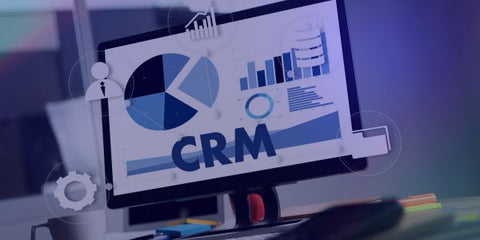CRM consultants are the architects of customer relationships. Their mission: to help companies better structure their sales, marketing, and customer service processes around powerful tools. To achieve this, they rely on a wide range of SaaS tools that allow them to manage complex projects, customize CRM platforms, automate data flows, and optimize the user experience. These solutions have become indispensable for improving efficiency, accuracy, and agility. Here’s a non-exhaustive overview of the most commonly used SaaS tools by CRM consultants.
1. The CRM software: the core of the job
You can’t talk about CRM consultants without mentioning their primary tool: the CRM system itself. It is the central hub around which all sales, marketing, and customer service activities revolve. Choosing the right CRM, understanding its nuances, and fine-tuning its configuration is the core challenge for a CRM consultant.
Among the most widely used solutions:
The market leader, highly used by large enterprises, known for its rich features, app ecosystem, and customization capabilities.
Valued for its user-friendliness, freemium model, and built-in marketing automation.
Sales-focused, very popular with SMEs, with an intuitive interface that’s a plus for sales teams.
An affordable and comprehensive solution, often chosen for projects with tight budgets.
Widely used by companies already integrated into the Microsoft ecosystem.
CRM consultants must master these platforms to configure workflows, build reports, integrate third-party tools, and train end users. Their technical and business expertise on these tools is key to unlocking their full value and helping clients significantly improve customer relationships.
2. Project management tools: structuring and steering projects

Even the simplest CRM project involves scoping, configuration, testing, and deployment phases. To coordinate these steps and all stakeholders, consultants rely on robust SaaS project management tools.
Popular tools include:
Asana
Structures projects into tasks, subtasks, milestones, and deadlines, promoting cross-team collaboration.
Trello
A visual Kanban tool, perfect for intuitively tracking project stages.
ClickUp
Increasingly popular for its versatility and customizable interface.
Monday.com
Appreciated for its ease of use and multiple views (Kanban, calendar, Gantt, etc.).
Jira
Mainly used in agile or technical contexts, especially for complex integrations.
Project management is the backbone of a successful CRM engagement. With these SaaS tools, consultants can organize their work effectively, streamline communication, and secure deliverables at every stage.
3. Documentation and knowledge tools: centralizing expertise

The success of a CRM project also depends on the ability to clearly document processes, configurations, and decisions. For this, consultants use SaaS tools that help capture and share information easily.
Key tools include:
Notion
Widely used for creating knowledge bases, user guides, checklists, and more, all collaboratively.
Confluence
Popular in Jira/Atlassian environments, offering powerful project documentation structuring.
Coda
A hybrid of docs, databases, and spreadsheets, valued for its flexibility.
Google Workspace (Docs, Sheets)
Still widely used for simplicity and real-time collaboration.
A good CRM consultant doesn’t just configure tools—they transfer knowledge. With these SaaS documentation tools, they build a long-term knowledge base useful to their clients.
4. Integration tools: connecting systems

A CRM system is never isolated—it must integrate with other systems (ERP, marketing tools, customer support platforms, etc.). CRM consultants use integration and automation tools to streamline data flows.
Well-known tools include:
Zapier
Automates actions between hundreds of apps without coding.
Make (formerly Integromat)
More powerful than Zapier for complex scenarios.
Workato
Often used in advanced enterprise contexts with numerous connections and business logic.
Tray.io
Comprehensive, aimed at integrators and technical consultants.
n8n.io
Open-source and self-hostable, for more independent projects.
CRM consultants often act as conductors between systems. SaaS automation tools allow them to create smooth workflows, reduce human error, and improve efficiency.
5. Customer Data Platform (CDP) tools: unifying customer data

In an omnichannel environment, customer data is often scattered across CRM, websites, support systems, and ad campaigns. To centralize, intelligently segment, and activate this data, CRM consultants increasingly incorporate CDPs into their stack.
Notable CDPs include:
Treasure Data
A powerful platform for large enterprises, collecting real-time data from multiple sources with built-in machine learning.
Tealium
Widely used for tag management and multi-source tracking, combining CDP, tag management, and marketing activation.
BlueConic
An agile, business-focused CDP, ideal for building unified customer profiles and using them in targeted campaigns.
Imagino
A rising French solution, designed for retailers and e-commerce businesses seeking better personalization and marketing performance through smarter data use.
CDPs shift CRM from a contact-centered approach to a data-driven, behavior-centered strategy. By adding these tools, CRM consultants greatly enhance segmentation, personalization, and performance management capabilities.
6. Marketing automation tools: nurturing customer relationships

An effective CRM does more than manage contacts—it activates the right marketing levers at the right time. CRM consultants often incorporate marketing automation tools to orchestrate personalized campaigns, track customer behavior, and nurture leads toward conversion.
Marketo
Robust and comprehensive, designed for large enterprises with advanced marketing needs.
Pardot (Salesforce Marketing Cloud Account Engagement)
Automation tailored for B2B teams already in the Salesforce ecosystem.
Mailchimp
Simple, visual, and effective for SMEs, a great entry point into marketing automation.
ActiveCampaign
A strong balance between advanced features and accessibility, with scoring and integrated CRM.
HubSpot Marketing
Perfect for companies wanting an all-in-one tool combining CRM, email, workflows, landing pages, and analytics.
These platforms help CRM consultants build high-performing acquisition funnels, improve conversion rates, and align marketing and sales teams. Marketing automation is a powerful lever for turning prospects into loyal customers.
7. Customer service tools: streamlining post-sale relationships

A CRM consultant’s work doesn’t stop at the sale. The quality of the post-purchase customer experience is key to driving loyalty and maximizing customer lifetime value. That’s why customer service tools are a core part of the CRM stack.
Zendesk
A robust platform that centralizes tickets, chats, emails, and calls, with a customizable client portal.
Freshdesk
A complete, intuitive solution known for its excellent value and easy deployment.
Intercom
Particularly strong for online support with a conversational approach via chat, bots, and self-service.
Chatbots
Whether custom-developed or integrated into solutions like Intercom or HubSpot, they handle high volumes of inquiries while ensuring quick responses.
A well-equipped customer service function complements CRM perfectly. CRM consultants integrate these tools to improve customer satisfaction, reduce response times, and streamline support processes.
8. Reporting and visualization tools: driving data-based decisions

The power of a CRM lies not just in its features but in its ability to deliver actionable insights. To leverage customer data, consultants use reporting and visualization tools.
Commonly used tools include:
Tableau
A powerful data visualization solution, often paired with Salesforce.
Power BI
Ideal in Microsoft environments for creating dynamic dashboards.
Google Looker Studio
Free, intuitive, and great for simple dashboards connected to Google sources or CSV exports.
Klipfolio
Ideal for creating real-time KPIs from multiple sources.
Databox
Simple, visual reporting easily shareable with clients.
A great CRM is, above all, a management tool. By leveraging SaaS data visualization tools, consultants showcase their value and help clients become truly data-driven.
9. Communication and collaboration tools: improving interactions

Collaboration is at the heart of any consulting engagement. CRM consultants need to stay in constant communication with clients, colleagues, and sometimes external partners.
Popular tools include:
Slack
For real-time communication with project-dedicated channels.
Microsoft Teams
Widely used in organizations with Microsoft 365.
Zoom
Essential for remote meetings.
Google Meet
Lightweight and efficient, integrated with Google Workspace.
Loom
Useful for recording explainer videos and sharing asynchronous demos.
A well-communicated CRM project runs more smoothly. Consultants rely on collaborative tools to stay closely connected with clients, even remotely, improving responsiveness and reducing misunderstandings.
10. Billing tools: connecting finance and customer relationships

Billing and financial data management can no longer remain siloed. Today, CRM consultants aim to integrate billing tools into CRM environments to provide a complete view of the customer, from prospecting to payment.
A leading accounting and financial management solution, widely used by SMEs and mid-sized businesses, well-integrated with Salesforce and Microsoft Dynamics.
A modern platform designed for startups and scale-ups, combining accounting, payment management, and cash flow tracking, with an API for CRM integration.
And Co (now part of Fiverr Workspace)
A simple solution ideal for freelancers and small businesses, handling contracts, quotes, and invoices.
CRM consultants connect these tools to core platforms to automate invoicing, link financial data to customer records, and better track profitability by client. Integrating billing into the CRM streamlines internal processes and improves financial visibility.
Conclusion
In short, CRM is no longer just a contact or opportunity management tool. It has become the backbone of a company’s tech ecosystem, especially when enriched with powerful analytics layers. Thanks to its ability to centralize customer data and make it actionable, it naturally integrates with multiple systems: marketing automation, customer service, billing, CDPs, data visualization, and more. Each technology builds on this foundation to create a complete, coherent architecture aligned with each organization’s business needs.
At SaaS Advisor, we believe a well-designed CRM is not just a tool—it’s a true strategic hub, capable of uniting different SaaS solutions around a unified customer vision. By mastering these solutions, CRM consultants gain productivity, reliability, and impact. For businesses, it’s also a mark of professionalism: a well-equipped consultant means a well-structured project and a faster ROI.
Our CRM consultants have deep expertise in the most effective SaaS tools on the market. They support both operational and strategic engagements, helping you select, integrate, and optimize your CRM solutions. Our goal: to help you build an effective, sustainable customer relationship strategy tailored to your business goals, while training your teams for successful adoption.





